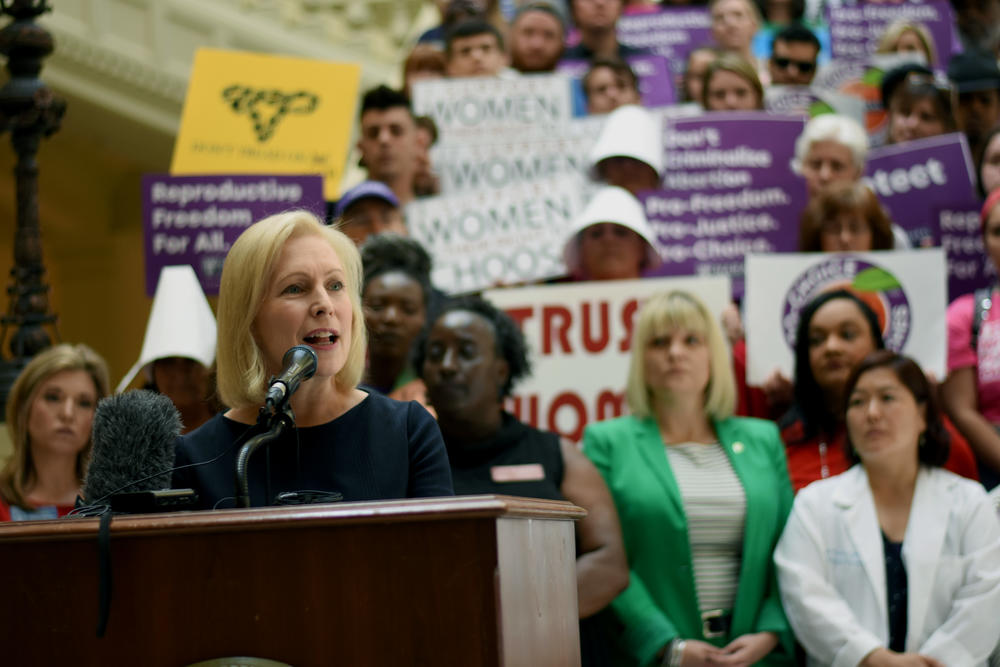Section Branding
Header Content
Gillibrand: Abortion Laws Are ‘Nationwide Assault' On Women’s Rights
Primary Content
U.S. Senator and 2020 presidential hopeful Kirsten Gillibrand (D-NY) spoke against a slew of abortion restrictions passed in states across the country Thursday at the Georgia state Capitol.
“Right now, entirely too much of the conversation about what women can do with our own bodies is being driven by a group of right-wing male politicians,” Gillibrand said, flanked by female state lawmakers, health providers and abortion rights supporters. “It’s time for that conversation to be led by the actual experts: women and doctors.”
The junior senator from New York also said bills like Georgia’s “Living Infants Fairness and Equality Act” represent a “nationwide assault on women’s constitutional rights” and that supporters of these measures want to “turn back the clock” on women’s civil and human rights.
As one of 23 Democratic candidates vying to challenge President Donald Trump in next fall’s election, Gillibrand said she was the first one to roll out a robust reproductive rights agenda, including a promise to only nominate judges who support upholding Roe v. Wade as settled law.
Additionally, she said as president she would codify the landmark U.S. Supreme Court decision, end the Hyde amendment that bars Medicaid funds from being used to pay for abortion services (except in cases of rape, incest or life endangerment) and guarantee access to reproductive health care in every state.
RELATED: More 'Heartbeat' Abortion Bans Advancing In South, Midwest
Alabama Gov. Kay Ivey on Wednesday signed the country’s toughest abortion laws, banning nearly all abortions in that state once it takes effect in six months. Kentucky, Ohio, Mississippi and Georgia have all recently approved “fetal heartbeat” legislation that bans most abortions once doctors can detect a heartbeat, around six weeks into pregnancy and before most women know they are pregnant.
Georgia’s bill will not take effect until Jan. 1, 2020, and also includes language granting certain legal and economic rights to an unborn embryo or fetus after the heartbeat is detected.
All of these measures have already or soon will face legal challenges, something both supporters and opponents of tougher legislation believe could land one of these bills in front of the U.S. Supreme Court.
Political Rewind: How Will The 'Heartbeat' Bill Interact With Current Georgia Law?
Speaking to several news outlets after the Georgia and Alabama abortion bills were signed, Planned Parenthood Southeast President and CEO Staci Fox had a message for Gov. Brian Kemp and Gov. Kay Ivey, saying that she would see them in court.
And state Sen. Jen Jordan (D-Atlanta), whose passionate, personal speech about multiple miscarriages during debate on Georgia’s bill went viral on social media, said there would be another effect of these bills at the ballot box next November.
“This may have been a salvo by the Republicans to put us in our place,” Jordan said. “But I will tell you that in 2020 we will be in our place… in their seats.”


